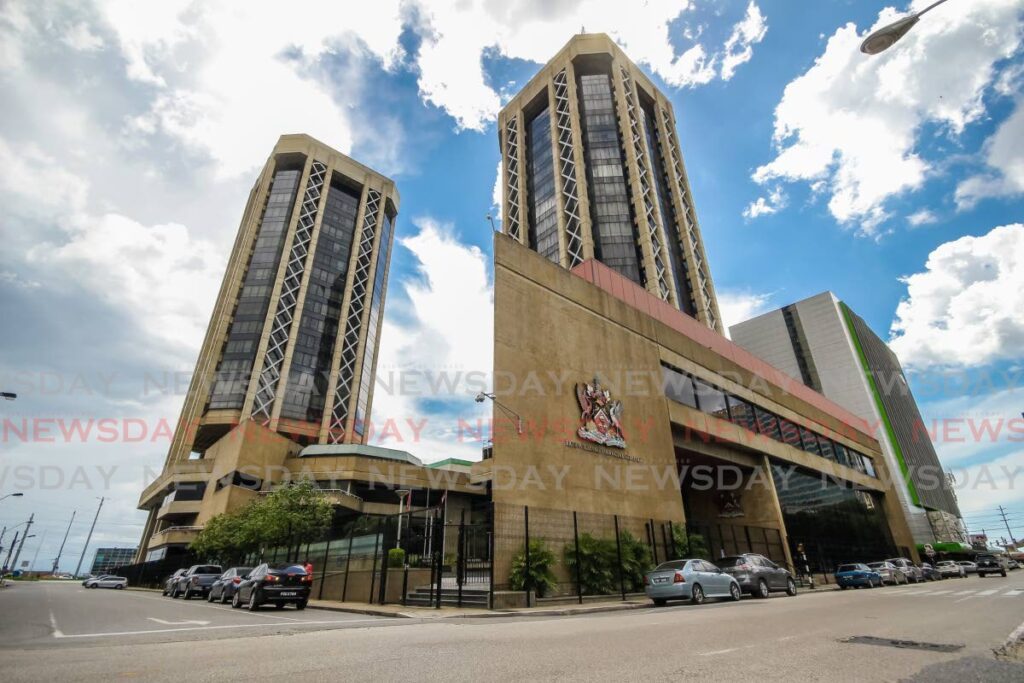CBTT as insurance brokerage regulator

DR NEIL GOSINE
I WRITE this article from the point of view of the insurance brokerage industry and the increasingly more back-breaking regulatory rules.
One of the core functions of the Central Bank of TT (CBTT) is supervision of the insurance industry. The bank tries to maintain a stable financial system by minimising the potential for losses by depositors, policyholders and pension plan members, and of course this is commendable.
The responsibility for maintaining this mandate lies with the Financial Institution Supervision Department (FISD) within the bank. And encouraging stability of the financial system is, of course, one of the key directives of the bank.
Section 65(1) of the Insurance Act bestows on the Central Bank the authority to "at any time intervene in the affairs of a company registered under this act to carry on insurance business." It allows the governor, if he is not satisfied that the company is operating properly, to intervene, as detailed in section 65(2).
All insurance companies and insurance brokers are regulated by the Central Bank. The brokers pinpoint and organise adequate insurance cover for commercial organisations and private clients. The brokers work together with their clients and insurance companies, sourcing from the companies the best insurance-cover deal for their clients.
Over the last ten years the CBTT has clearly lost its way and has become omnipotent in its actions towards brokers – a force on to itself, in my opinion.
This is based on the bank's narrow-minded thoughts in over-regulating brokers and stems from the manner in which it views the brokers fraternity, the way the CBTT is funded by taxpayers and how it spends taxpayers' funds.
For example, just look at the condition of its headquarters, the Twin Towers. The CBTT tower is a rigid, brittle place, anointed with original pieces of art and armed with a battery of new cars in the private car park, while their sister tower is rundown, scruffy at best, crowded and dingy.
This demonstrates the CBTT's divergence of responsibility.
One function as a regulator for financial institutions is to regulate. Not only to give "scorching hot-water" mandates all the time to the companies, but to also help the industry grow and foster a healthier environment in the brokerage sector by delivering "cooling water" to allow business to grow under its tenure.
In our industry we are continually bombarded by more and more rules, and ethics of course play a large part at all levels, especially at the individual and business levels, as the cornerstone of our industry is “utmost good faith.” However, if the companies cannot afford to implement all the regulations imposed on them we will see the smaller to mid-size brokerage companies failing and closing up shop.
The insurance industry, especially the brokerage fraternity, is finding it difficult to cope due to burdensome and onerous regulations imposed by the Central Bank.
What is required at this stage is bringing all parties together, like what other international regulators are doing, to keep the business alive and thriving.
It needs to monitor the banks to give lower credit card rates and cut the cost of transactions to the public. Many of the banks have implemented additional harsh charges to their customers, such as the charge for note and coin deposits over the counter. The charge is less if the customer chooses to deposit via the night safe.
In other words, pay a price for a safer deposit at the counter or run the risk of being held up and robbed at the night safe.
This is now a new charge by the banks, a way of earning more from the same customers that keep them in business. Why doesn’t Central Bank look into this? We the public and small businesses and their customers are struggling to make ends meet and all the CBTT does is find other ways to charge us for the basic services.
Why doesn’t it look at the large massively successful insurers and ensure they are monitored more and pressured more to pay claims quicker? Not to lowball its customers and dig out their eyes when a claim is made.
Why doesn’t the CBTT use the increased fees it charges for licensing on industry to implement continuing professional development classes at no charge? Within the last three years the bank has imposed mandatory continuous professional development classes on brokers. They must pay out of their pocket for their staff to take these courses from the TT Insurance Institute (TTII).
Each person in the brokerage firm dealing directly with clients and negotiating insurance contracts with insurance companies are required to do these courses at least 12 to 16 hours, depending on the types of insurance business they do. It’s mandatory that brokers undertake this training yearly now.
The point I’m making here is that the regulator does not need to bash us over our head with clubs and constantly tell us what to do. The policymakers need to slash regulatory barriers to help businesses and the people deal with the rising cost of doing business and not be hindering business. They need to find solutions to allow the business to succeed. As the old saying goes, business is business, so let's see how we can find ways of making it happen.
Our businesses already have many increased costs imposed by the regulators since the changes made in the Insurance Act, and both us and our customers are also struggling to make ends meet, so we need an understanding regulator, not a slave driver.


Comments
"CBTT as insurance brokerage regulator"